Course: Export to the EU
Online Course “How to Export to the European Union / Import from the EU” (2 ECTS,  )
)
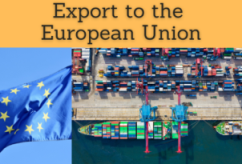
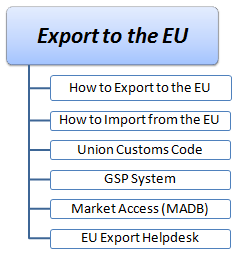
The purposes of the Professional Course “How to Export to the EU / Import from the EU” taught by EENI Global Business School are to:
- Know the procedures, requirements and rules necessary to export a good to the EU or to import it from the EU
- Identify the existing import restrictions and quotas
- Analyze the applicable tariffs and taxes
- Know the new European Customs Code
- Analyze the new simplified customs procedures in the EU
- Know the EU special regimes
- Understand the new EU Generalized System of Preferences (GSP)
- Know how to use the rules of origin of the Generalized System of Preferences
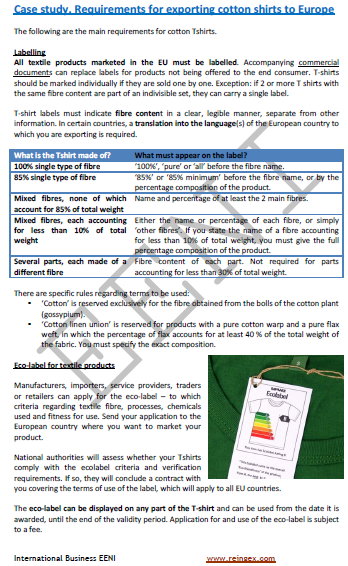
 Enrol / Request for Information
Enrol / Request for Information

- Credits: 2

- Duration: 2 weeks It is recommended to dedicate about twelve hours of study per week following a flexible schedule. It is possible to reduce the duration dedicating more hours a week
- Tuition Fees: EUR 48
- Open Online Enrollment
- Download the syllabus of the Course (PDF)
Languages: 
- Also available in For improving the international communication skills, the student has free access to the learning materials in these languages (free multilingual training).
 Curso Exportar UE
Curso Exportar UE  Cours exporter ver l'UE
Cours exporter ver l'UE  Curso Exportar para a UE
Curso Exportar para a UE
- How to Export to the EU or import from the EU
- New Customs Code of the EU (formerly: Community Customs Code)
- Generalized System of Preferences of the EU
- The EU Export Helpdesk: The EU export/import tariffs with the developing countries
- Market Access Database (MADB) for the European exports to the third countries
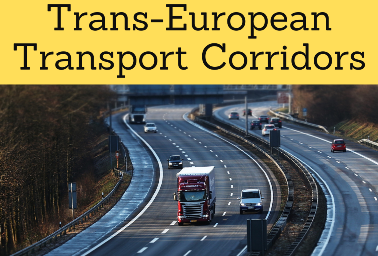
- Atlantic Corridor
- Baltic-Adriatic Corridor
- North Sea-Baltic Corridor
- North Sea-Mediterranean Corridor
- Mediterranean Transport Corridor
- Eastern Europe-Eastern Mediterranean Transport Corridor
- Scandinavian-Mediterranean Transport Corridor
- Rhine-Alpine Transport Corridor
- Rhine-Danube Transport Corridor
- Strasbourg-Danube Transport Corridor
- Pan-European Corridor II
- Pan-European Corridor IX
The course includes the Market Access Tool:
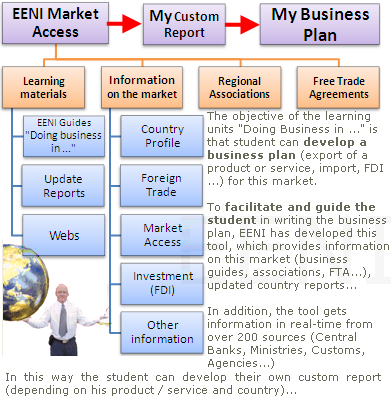

This course contains exercises that are evaluated, which the student must work out and pass to obtain the Diploma of the Professional Course: “How to Export to the EU / Import from the EU” issued by EENI Global Business School.
Students who have taken this Course can validate and register for a Master or Doctorate at EENI.
Aimed at anyone wishing to export goods to the EU markets or import goods from the third countries from any EU country.
This course belongs to the following Higher Education Programs taught by EENI:
Masters: International Business, Foreign Trade.
Doctorate: European Business, World Trade.
Masters for the Students from the  EU.
EU.
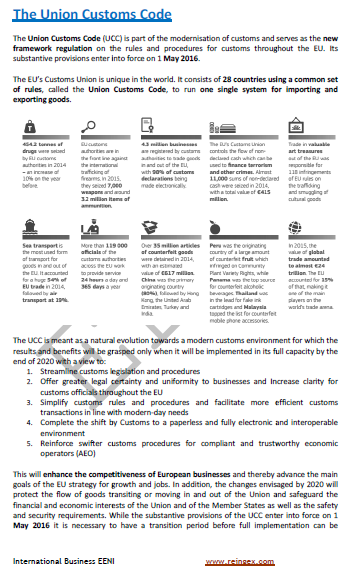
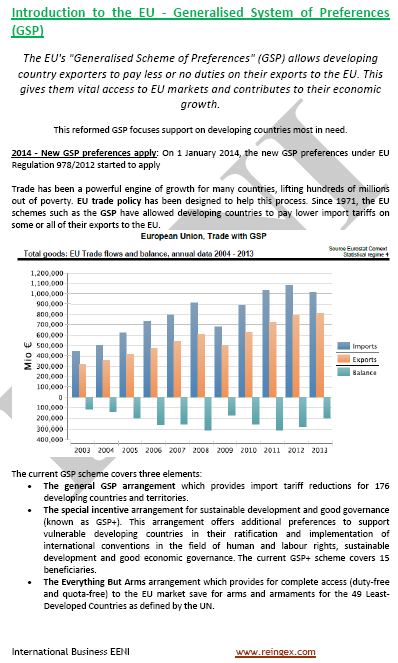
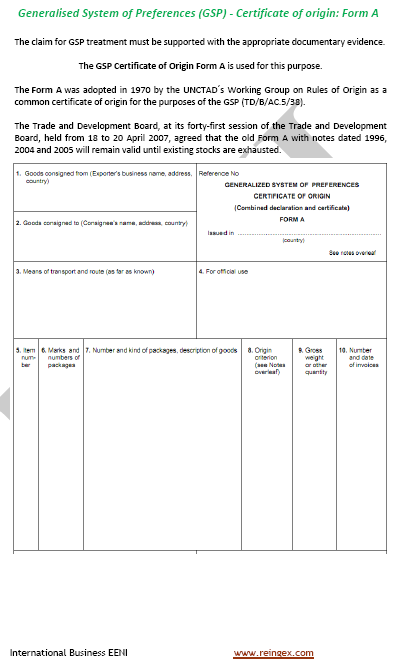
Knowledge Area: Europe.
Note: this course does not analyze the EU trade agreements with the third countries; these are studied in the course: International economic relations of the EU.
(c) EENI Global Business School (1995-2024)
We do not use cookies
Top of this page



